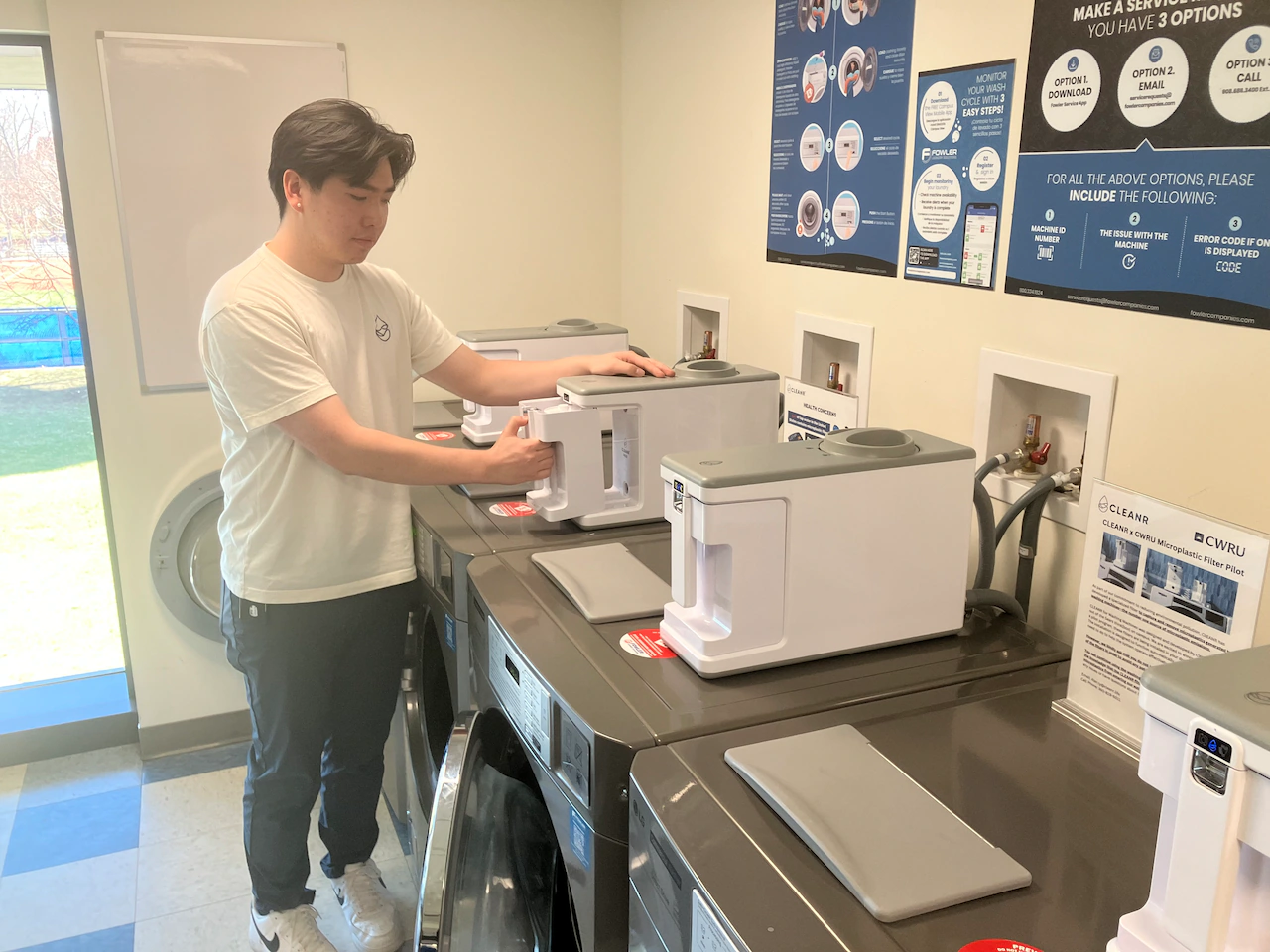Copyright cleveland.com

CLEVELAND, Ohio – The Cleveland-based startup that has developed technology to filter microplastics from the wash cycle has expanded its presence at Case Western Reserve University. After a successful pilot program in which external filters were installed on five machines in the school’s Stephanie Tubbs Jones Hall, Case now has 100 filters on machines in laundry areas across 23 dormitory buildings on campus. The filters are designed to remove microfibers that slough off clothing items while they are being washed, thereby preventing the vast majority from going down the drain and ultimately into rivers, streams and the water supply. Microplastics have been found in bottled water and to a lesser degree in tap water. They are also present in fish. Plastic material, including polyester, acrylic and nylon, make up about 60% of clothing, according to a 2019 publication by the United Nations Environment Programme. “Laundry is the number one source of microplastic pollution,” said Scott Hardy, an extension agent with Ohio State University’s Sea Grant Program and an associate adjunct professor of earth, environmental and planetary sciences at Case. Microplastics and smaller nanoplastics have become a serious health concern as researchers have found them throughout the human body. While the plastics themselves can “distort the architecture” of cells, the chemical additives can leach out and get into the bloodstream, according to Dr. Philip Landrigan, director of the Program for Global Public Health and the Common Good at Boston College University. The additives, which can cause various maladies in humans, can comprise up to 50% of the weight of plastic, he said. CLEANR, which was born in the Sears think[box] maker space at Case by three fraternity brothers, sells its filters at different price points. Case bought its filters for $299 apiece. Each comes with 10 disposable pods that collect the microplastics using CLEANR’s vortex technology. A less expensive model comes with a pod subscription. The 100 filters will handle 80,000 loads over the next year and remove more than 140 billion microplastics, said Max Pennington, co-founder and CEO of the company. CLEANR has additional pilot programs underway at University of Akron and the University of South Alabama and hopes to expand into other markets, Pennington said. While the company’s sales - supported by a small advertising budget - have largely been to household customers, CLEANR would like to do business with more institutions and eventually washing machine manufacturers. The goal is to have the technology installed inside washing machines. Consumers will pay more for an appliance if it has an integrated filter, said Terry Moore, a former senior managing director at Accenture who serves as the executive chairman of CLEANR, because the public is becoming more aware of the dangers of microplastics. Moore said CLEANR’s patented technology could have a variety of uses, including on dryers to filter airborne microplastics, and as a filter for water as it comes into the house and before it is consumed by humans. CLEANR has competition. Industry giants Samsung and Bosch have developed external washing machine filters, but unlike CLEANR, their initial focus has been outside the United States, Moore said, although he has seen their products advertised by Best Buy and Home Depot. Moore said he is confident that CLEANR has the superior product, which includes an app that shows users how much microplastic is being removed. “So, it’s kind of a fun thing,” he said. “They can show their friends how much of an impact they are having on the environment.”



